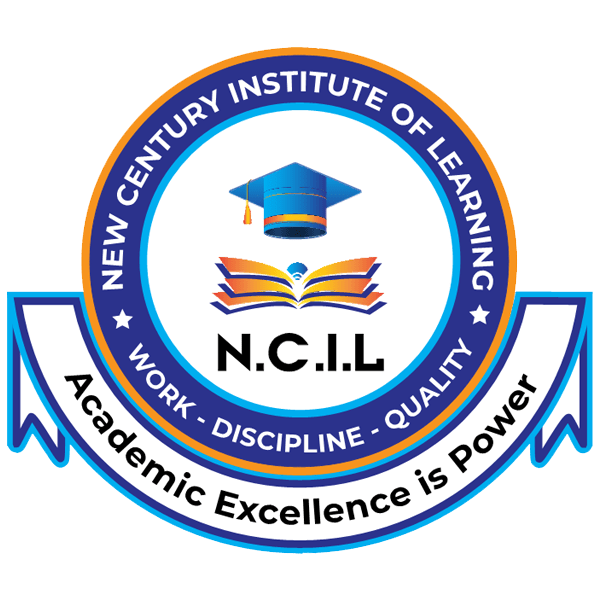SCHOOL POLICIES
New Century Schools System
SCHOOL IS WHERE:
SCHOOL IS WHERE:
THIS IS WHY IN NEW CENTURY SCHOOLS WE HAVE ADOPTED
THAT HAVE THE PROPENSITY TO
AND MAKE OF THEM
I- Respect for the organization of school life
• Considering Circular letter no. 09/05/MINESEC/SEESEC of 20/04/2005, and Circular letter no. 019/B/1464/MINESEC/SG/DSSAPPA/SCA laying down provisions for the application of inter-ministerial decree no. 242/L/729/MINEDUC/MJS of 25/10/1979 bearing on the organization of extracurricular activities;
• Considering Circular letter no. 29/10/I/MINESEC/SG/DRH/SDSSAPPS amending Circular letter no. 57/05/MINESEC/SG/SDSSAPPS of 12/04/ 2005 bearing on the organization of sanitation in schools.
1- New Century Institute of Learning shall admit Students within the school campus every working day as from 7:00 a.m. to 3:30 p.m.
2- Beyond 3:30 p.m., students are not allowed within the school premises. Any student found out of the school campus during school periods shall be meted out sanctions.
3- Aggravated actions during duties for the respect of State Institutions (desecration of the seals, insolence, and refusal to take part in match pass or to sing the national anthem) attract sanctions that vary between one (01) to three (03) days suspension. Gross exaggeration leads to summoning the offender to the disciplinary council.
II- Respect for the neutrality and secularism of the school
Law no. 98/004 of 14 April 1998 bearing on the orientation of education in Cameroon lays down in the provisions of article 10 that, the school is secular and apolitical. No political propaganda is authorized within the school premises.
III- Respect for others and school property
The detention, destruction and theft of objects is forbidden.
Public goods are sacred. The upholding and conservation of the school’s heritage contribute to civic and moral education. Any action aimed at destroying or devaluing it is an uncivil act punishable with extreme rigour. Vandalism, urine or faeces deposits on the school surroundings or in classrooms are serious offences punishable under the New Century Schools sanction policy.
STUDENT HAND MANUAL (NEW CENTURY SCHOOL HOURS)
CLASS ORGANIZATION
I- One-shift system
We operate a one-shift system at the New Century Schools that runs from 7:30 a.m. to 3:30 p.m.
II- Breaks
Two break periods exist as shown below:
• First break: 10:30 a.m. to 10:45 a.m;
• Second break: 1:00 p.m. to 1:45 p.m.
III- Free periods
Free periods are devoted to studies in an atmosphere of silence, and to individual classrooms assignments or to research work in the school library. With authorization of the school administration, it could be allocated to remedial/catch-up courses or any other useful activity.
IV- Exit from class during lessons
During lessons, students could solicit an exit authorization from the teacher for a genuine and serious matter: sickness or written convocation from the administration.
During free periods, the class head is the authority that issues exit authorization.
• The disciplinary office handles cases of students sent out of class by the teacher during lessons for indiscipline or assignment not done. The undisciplined student is summoned to appear before the school disciplinary office, along with the notification of summon;
• Students may solicit a written authorization from the discipline master or principal. However, concerned students must submit justification for such absences at most 48 hours following their return.
The class head and his or her assistant are responsible for the management of the classroom when the teacher is absent or during free periods devoted to studies.
The class head is an auxiliary to the administration and appointed by the principal to perform the following duties:
• To foster discipline, results and moral rectitude;
• To ensure order and discipline in the classroom and submit to the hierarchy, names of students who are absent and/or undisciplined;
• To ensure careful use of the administrative documents of the class.
V- Authorization of absence
Students requesting for an exit authorization to go out of the institution for genuine reasons must go to the disciplinary office to obtain an exit ticket that grants them an authorization of exit, mentioning the motif, exit time and the expected time of return. Students with exit authorization must submit to the disciplinary office, within 48 hours after their school resumption, the relevant justifying documents. No visitor is allowed to take a student out of the classroom without authorization from the school administration.
Any students caught wandering about in or out of the institution while courses are going on, will be considered as loitering around and be punished accordingly by two (02) hours of chores, while those found outside the school campus are sanctioned by one (01) to three (03) days suspension with chores and notification to their parents.
VI- Medical check-ups
Students must have an appropriate medical booklet for their health needs. In the event of sickness or accident within the school premises, students are entitled to first aid treatment. In case of need, students may solicit and obtain an exit ticket.
In any case, the health situation of the student is the responsibility of the parents. For health need other than medical check-ups initiated by the hierarchy, the principal can request for health service and medical check-up from within the school premises. Students have the obligation to comply with this prerogative, failing which they would be dismissed.
VII- Maintenance of order in the classroom
Maintenance of calm and order in the classroom is the responsibility of the teacher, and during his absence, the class head. The teacher goes to the disciplinary or Campus Life Coordinator’s (CLC’s) office in case of need. The discipline master or CLC summons students who are guilty of indiscipline, and subject them to chores or convene them before the disciplinary council.
VIII- School work and sanctions
VIII-I: School furniture
Students must have school manuals, books and other pedagogic furniture or equipment recommended by the institution, and found on the official list of manuals, failing which those students concerned may be suspended from classroom lessons. In addition, failure to comply with the above provision will lead to suspension of the students from the subject lessons where they are lacking in school materials, and the suspension treated as unjustified absence.
VIII-II: Tests and knowledge assessment
The institution schedules assessment of students according to the school calendar of activities. Teachers communicate their assessment programme to their students according to lessons taught. Teachers record their assessment of students in a transcript that the school issues each term and bring the same to the attention of the parents or guardians of the students for them to sign.
Unjustified absences during student assessment sessions leads to a score of 00/20 and the caption ‘absent’ written on the student’s report card by the teacher.
Students should justify their absences during assessment sessions directly at the level of the teachers concerned before they register their marks or otherwise to the discipline master.
Students caught in the act of fraud, in any form whatsoever will face the disciplinary council and marks of 00/20 meted out as sanctions. The disciplinary council can pronounce suspension decisions, which range from one (01) to eight (08) days, under notification to their parents or guardians.
VIII-III: End of term organisation
End of term does not give room for chaos and abandonment of school. During this period, we control the behavior of students by subjecting them to the following:
• The provisions of the school calendar in the Republic of Cameroon;
• The course program for the period concerned, with evaluation and remediation;
• The departmental and disciplinary council for recalcitrant students.
VIII-IV: Sanctions relating to the merits of the student after assessments
According to Circular letter no. 0016/A/356/MINEDUC/SG/IGP of 23/01/1979, relating to the class council, the table below spells out sanctions on schoolwork and conduct of students. No student can triple a class regardless of his age.
I- STUDENT RIGHTS
The universal declaration of human right gives students the following rights:
• Education and culture.
• Affection and protection.
• Cleanliness and health.
• Dignity and respect.
• Freedom and responsibility.
The Cameroonian constitution of 18/01/1996, in its preamble, provides that: “Every person has the right to life, to physical and moral integrity and to humane treatment in all circumstances. Under no circumstances shall any person be subjected to torture, to cruel, inhumane or degrading treatment”.
Article 35 of the law on the orientation of education in Cameroon stipulates that the physical and moral integrity of students is guaranteed by its educational system. Are therefore, prohibited:
• Physical assault and all other forms of violence;
• Discrimination of any type;
• The sale, distribution and consumption of alcoholic beverages, tobacco and drugs (narcotics).
a. The right to study
Law NO. 98/004 of 14 April 1998 bearing on the orientation of education in Cameroon stipulates in its article 34 that students have the right to studies prescribed by the official programs. This right is exercised through the strict respect of freedom of expression, thoughts, conscience and information.
Students have a free right to the following:
• All lessons;
• School library;
• Consultation of teachers during appropriate hours.
b. The freedom of individual and collective expression
Freedom of communication, freedom of expression, freedom to hold meetings, freedom of association, freedom to form syndicates (trade unions) and the right to go on strike are guaranteed by conditions fixed by the law (constitution of 18/01/1996, preamble).
Schools prepare youths to civic life, and students have the right to individual and collective expressions, with respect to their dignity.
This right shall not lead to defamation, political and religious propaganda, extremism, radicalism, public disorder.
c. The right to publish
The right to publish in a school journal is acceptable for all students. This contributes to the pedagogic, cultural, political and creativity training of the individual. This right does not give rise to disorder and manipulation. The school administration has responsibility for the follow-up of this right.
d. The right of association
Students have the right to take part voluntarily in an association within the school premises during extracurricular activities. However, association of a tribal, political, sectarian or proselytization nature are prohibited.
e. The right for medical coverage
In order to guarantee collective health, the school must not expose students to dangerous activities.
Students have the right for:
• A clean environment;
• An infirmary and school pharmacy, for first aid intervention;
• An exit ticket for health problems and natural needs.
Students showing signs of health problems should be quarantined immediately. The school shall only rehabilitate such cases after referring them to the competent health practitioner for health assessment and clearance. However, the occurrence of any health threatening cases within the school premises, as epidemics, should be denounced to the competent authorities.
Students willing to go to hospital must obtain an exit ticket issued by the disciplinary office, to serve as an authorisation of absence.
The exit ticket must signed by the health practitioner for it to be considered valid.
This also applies to treatment by traditional medicine. In case of hospitalization or an illness that occurs on non-school days, parents of the concerned students must inform the school administration on time.
f. The right for social assistance
Students have the right for solidarity, social assistance during needy moments (sickness, accident…) and to school insurance cover. The institution should promote within the confines of its possibilities, this African value.


